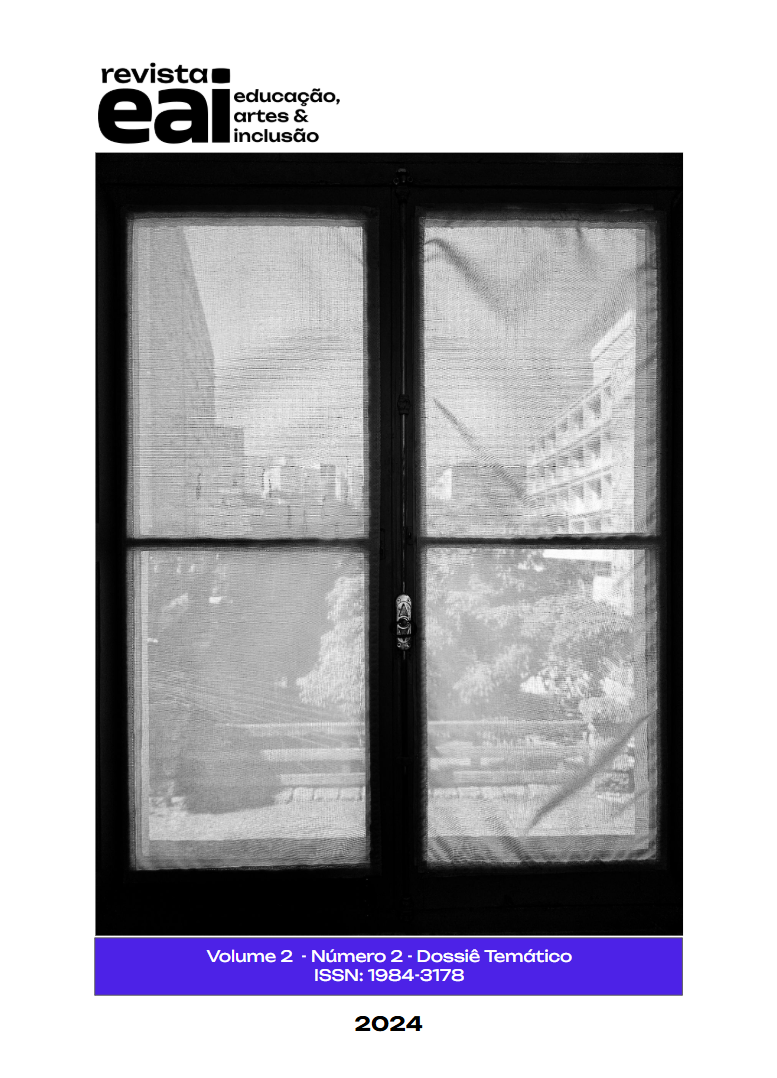Andragogy: diversity and culture, factors of inclusion and exclusion in the school context of EJA
DOI:
https://doi.org/10.5965/1984317820220240117Keywords:
andragogy, EJA, adult teachingAbstract
The Education Guidelines and Bases Law – LDB defines education as: “training processes that develop in family life, in human coexistence, at work, in teaching and research institutions, in social movements and civil society organizations and in cultural manifestations". also defines youth and adult education (EJA) as: Youth and adult education will be aimed at those who did not have access to or continued studies in primary and secondary education at the appropriate age and will constitute an instrument for lifelong education and learning . In other words, it is education for those who did not have it at their appropriate age. However, there are peculiarities in adult teaching, through bibliographical analysis and the author's observations we will bring light to this type of teaching.
Downloads
References
BRASIL. Ministério de Educação. Fundo Nacional de Desenvolvimento da Educação (FNDE) - Sítio. Disponível em: https://www.fnde.gov.br Acesso em: 20 de janeiro de 2019.
BRASIL. Senado Federal. Lei de Diretrizes e Bases da Educação Nacional: nº 9394/96. Brasília: 1996. Disponível em: http://www2.senado.leg.br/bdsf/bitstream/handle/id/529732/lei_de_diretrizes_e_bases_1ed.pdf . Acesso em: 16 janeiro de 2019
BRASIL. Congresso Nacional. Lei Federal nº 9.394 de 20 de dezembro de 1996. Estabelece as Diretrizes e Bases da Educação Nacional. Diário Oficial da República Federativa do Brasil, Brasília, DF, 20 dez. 1996.
BRASIL. Ministério da Educação. Plano Nacional de Educação - PNE. Brasília: Inep, 2001.
Brasil. (1996). Lei 9394/96 de 20 de dezembro de 1996. Dispõe sobre as Diretrizes e Bases da Educação Nacional. Brasília, 1996.
FREIRE, Paulo. Educação como prática da liberdade. 30. ed. São Paulo: Paz e Terra, 2007.
FREIRE, Paulo. Pedagogia da Autonomia: Saberes necessários à prática educativa. 25 ed. São Paulo: Paz e Terra, 1996
FREIRE, Paulo. Pedagogia do oprimido. 17ª ed. Rio de Janeiro, Paz e Terra, 1988.
FREIRE, Paulo. Pedagogia da autonomia: saberes necessários á prática educativa 16ª ed. São Paulo: Paz e Terra, 1996.
FREIRE, Paulo. Educação e mudança_ v1 Rio de Janeiro: Paz e Terra, 1979.
FREIRE, Paulo. A importância do ato de ler, 27ª ed. São Paulo, 1989, ed. Cortez.
GADOTTI, Moacir (Org.). Educação de jovens e adultos: as experiências do MOVASP. São Paulo: Instituto Paulo Freire, 1996.
LEI nº 9.394/96. Disponível em: http://www.planalto.gov.br/ccivil_03/leis/L9394.htm. Acesso em 26 de Nov. De 2012
MOLL, Jaqueline. Alfabetização Possível: Reinventando o Ensinar e o Aprender 5ª ed. Porto Alegre, ed. Mediação,2004
PINTO, Álvaro Vieira. Sete lições sobre educação de adultos. São Paulo, ed. 1982.
SOARES, Magda. Alfabetização e Letramento: 2 ed. São Paulo: Contexto 2004.
Downloads
Published
How to Cite
Issue
Section
License
Copyright (c) 2025 Otávio Barduzzi Rodrigues da COSTA

This work is licensed under a Creative Commons Attribution-NonCommercial 4.0 International License.
Copyright Statement
The Educação, Artes e Inclusão is a journal that follows the Free Access Policy. The articles published by the journal are free of charge, intended for educational and non-commercial applications. The articles whose authors are identified represent the expression from the point of view of their authors and not the official position of the Educação, Artes e Inclusão Journal or the Educação, Artes e Inclusão Research Group.
Authors who publish in this journal agree to the following terms:
(A) Authors retain the copyright and grant the journal the right of first publication, with the work simultaneously licensed under the Creative Commons Attribution License which allows the sharing of the work with acknowledgment of authorship and initial publication in this magazine.
(B) Authors are authorized to take additional contracts separately, for non-exclusive distribution of the version of the work published in this journal (eg publish in institutional repository or as a book chapter), with acknowledgment of authorship and initial publication in this magazine.
(C) This journal provides public access to all of its content, as this allows for greater visibility and scope of published articles and reviews. For more information on this approach, visit the Public Knowledge Project.
This journal is licensed under a Creative Commons Attribution-NonCommercial-ShareAlike 4.0 International License. This license allows others to remix, adapt and create from your work for non-commercial purposes, and although new work must give you due credit and cannot be used for business purposes, users do not have to license such derivative works under the same terms.



